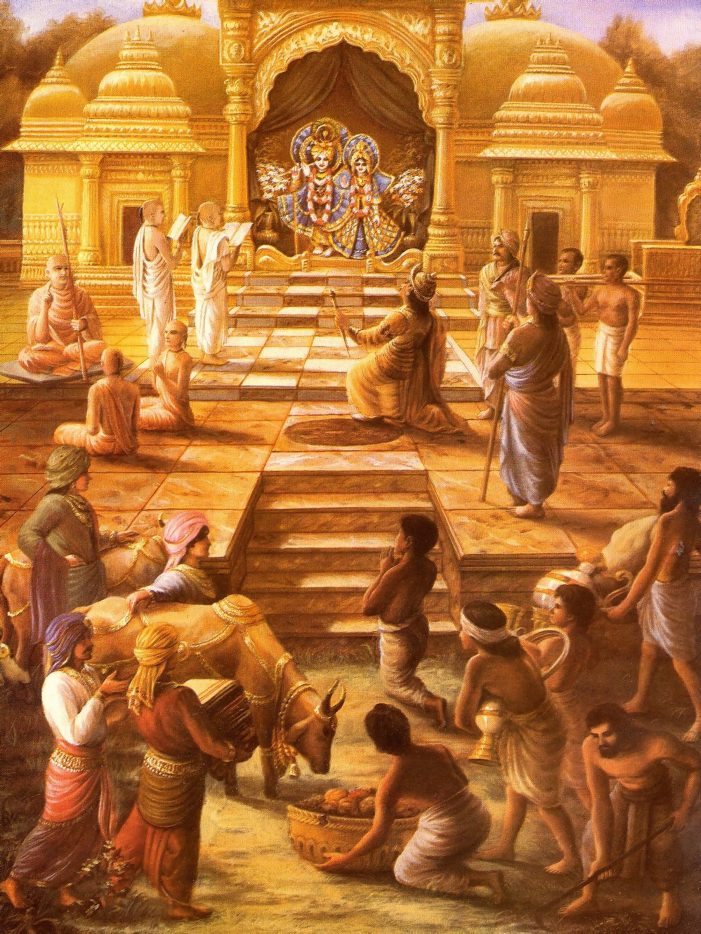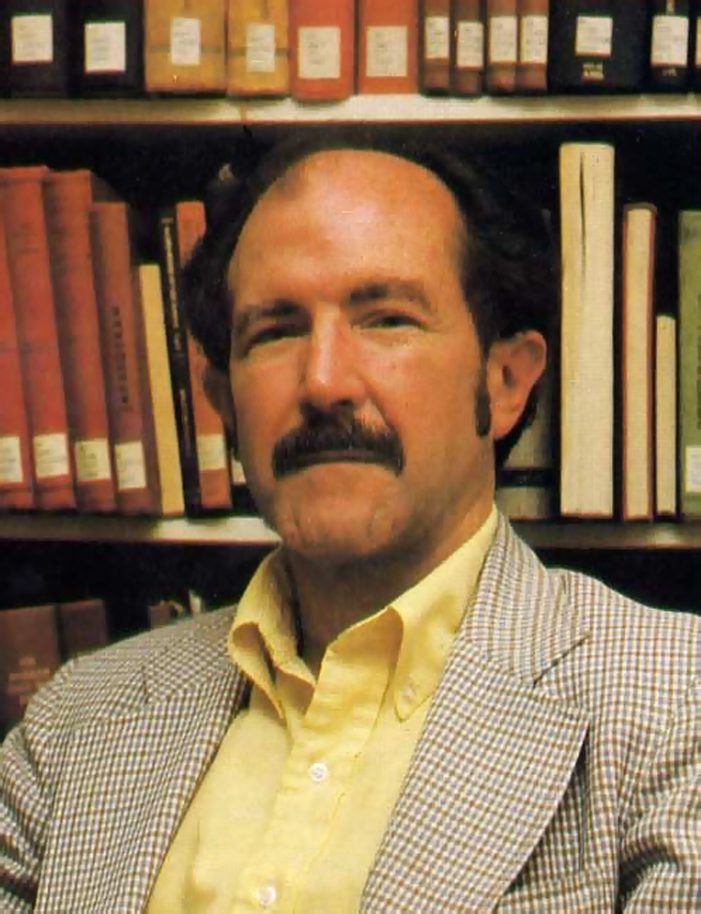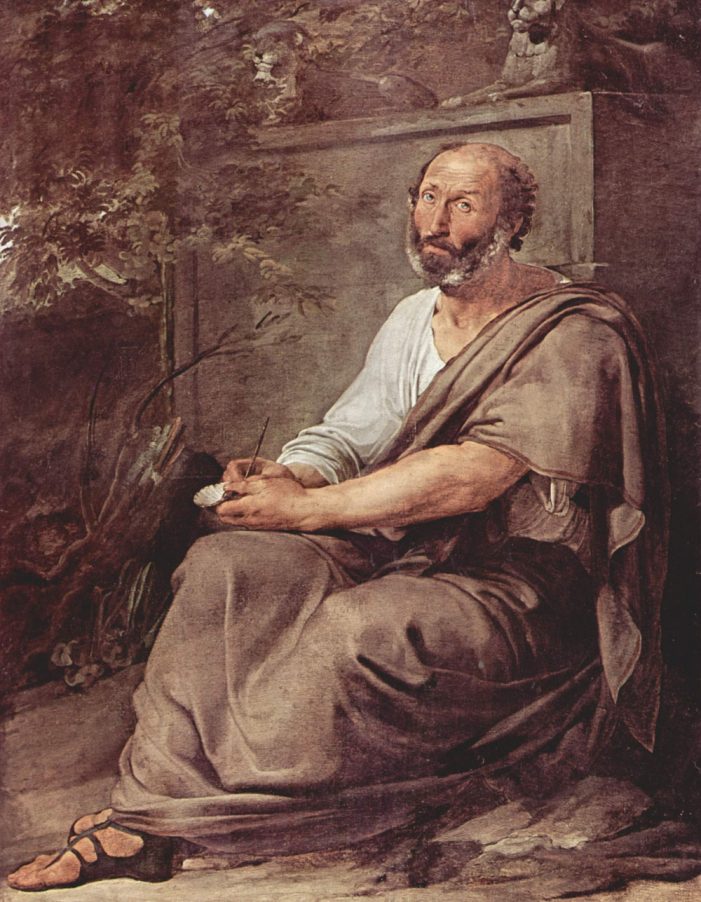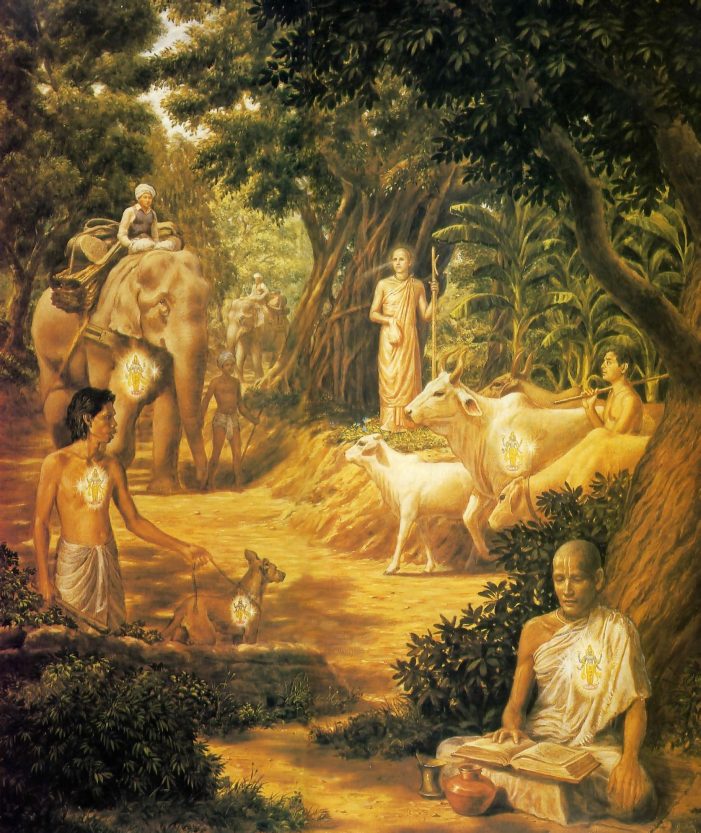The Religion Beyond All Religions

The perfect socio-religious system is explained by Lord Krsna in Bhagavad-gita. (This system differs from the prejudicial system of caste by birth.)
By His Divine Grace A.C. Bhaktivedanta Swami Prabhupada on ~Featured~, Religion

The perfect socio-religious system is explained by Lord Krsna in Bhagavad-gita. (This system differs from the prejudicial system of caste by birth.)
By Satsvarupa dasa Gosvami on Philosophy
Since everyone, no matter how he chooses to define the self, is interested in self-fulfillment, it is of paramount importance to know what the self is. Generally our concepts of the self are vague and speculative; so we often feel unfulfilled, even after attaining our goals.
By His Divine Grace A.C. Bhaktivedanta Swami Prabhupada on Abortion

Pregnancy means the child is already born. How can they say there is no child? What is this nonsense? When a woman is pregnant, why do we say she is “with child”? This means the child is already born.
By His Divine Grace A.C. Bhaktivedanta Swami Prabhupada on Sex
Sex is the main happiness in this material world. That is the main happiness, and it is very abominable. What is this happiness? It is like the rubbing of two hands together to relieve an itch.
By Dr. Thomas J. Hopkins on Religion

the largest number of new groups have come from India—so much so that the phenomenon can almost be considered a missionary movement from India to America.
By His Divine Grace A.C. Bhaktivedanta Swami Prabhupada on ~Featured~, Philosophy

By speculation Aristotle may have known something about God, but our point is that we can know everything about God from God Himself. This is not a question of “religion.” It is simply a matter of the best process to know God.
By His Divine Grace A.C. Bhaktivedanta Swami Prabhupada on Prabhupada, War
The atom bomb manufacturer is thinking he is successful in his life by building an atom bomb, but he does not know how to save himself from death. Nothing he has done can save him from death.
By His Divine Grace A.C. Bhaktivedanta Swami Prabhupada on Society
In India many men are already unemployed, so to introduce more machinery there is a not a very good proposal. One hundred men’s work can be done by one man working a machine. But why should there be so many men unemployed?
By Nandarani Devi Dasi on Society, ~Featured~

Recently I was reading one of the many new books by women who feel they should make their miserable plight known to the world. The book read like a horror story. It told how nuptial love becomes a nightmare of neglect and abuse.
By Jayadvaita dasa on ~Featured~, Society

Attempts to establish equality among all people are naive and superficial unless supported by spiritual understanding. Materially, we are not equal. Some people are geniuses; others are fools.
By Garuda dasa on ~Featured~, Philosophy

Srila Prabhupada often translates dharma simply as “religion.” But he indicates that he uses this particular translation for convenience and for want of a better single English term, and he expresses dissatisfaction with a translation that could be misleading.
By Hayagriva dasa on Society, ~Featured~

The President was informed that the earth and life on it are slowly dying. And that’s putting it euphemistically. The outlook is bleak. The report, entitled “Global 2000,” paints a landscape of a wasteland that makes T. S. Eliot’s portrait paradisal.
By Satsvarupa dasa Gosvami on Religion
A regular occurrence around here is that each year the local newspaper carries an article commending us for our hard work and decency but condemning us for not being Christians. We always answer the criticism, and the paper prints our reply.
By Ravindra Svarupa dasa on ~Featured~, Sex

The illusion I want to destroy is perhaps the most deeply rooted and pervasive of all human convictions. It is the idea that we can achieve happiness through the enjoyment of our senses, especially through that prototype of all pleasure, sex and sexual love.
By Ramesvara Swami on Society
The whole world has come under the spell of economic development, which, in a simpler sense, means greed. And our leaders themselves openly admit it—they actually want us to become greedy.
By Kirtanananda Swami on Religion

Religion is something you participate in; it’s not a spectator sport. Because it is based on faith, there’s no question of understanding it from the outside. Of course, it is not blind faith. It is reasonable faith.
By Ravindra Svarupa dasa on Government & Politics
The Republican Party seems to have emerged from its recent national convention as a reconstituted American conservative party, and the November elections may give the voters at least the appearance of choice between a clear right and a clear left.
By Madhudvisa dasa on Religion
What Is the Best Spiritual Process? After giving a lecture in Bombay in April 1979 Srila Hrdayananda dasa Goswami Acaryadeva answered a probing question from the audience: ‘All over the world, Christians are living and dying for their Christian faith. How is it that you young people-their progeny—have embraced another faith?” Srila Acaryadeva: Actually, you’ve […]
By His Divine Grace A.C. Bhaktivedanta Swami Prabhupada on ~Featured~, Philosophy

Socrates faces his death calmly and without fear, an attitude he said was but proper for a philosopher who is interested only in the care of his soul and is unaffected by bodily conditions.
By Ravindra Svarupa dasa on Philosophy
Krishna meditated, He became God. Buddha meditated, he became god. Jesus meditated, he became god. Now god wants you to meditate so you can become god…
